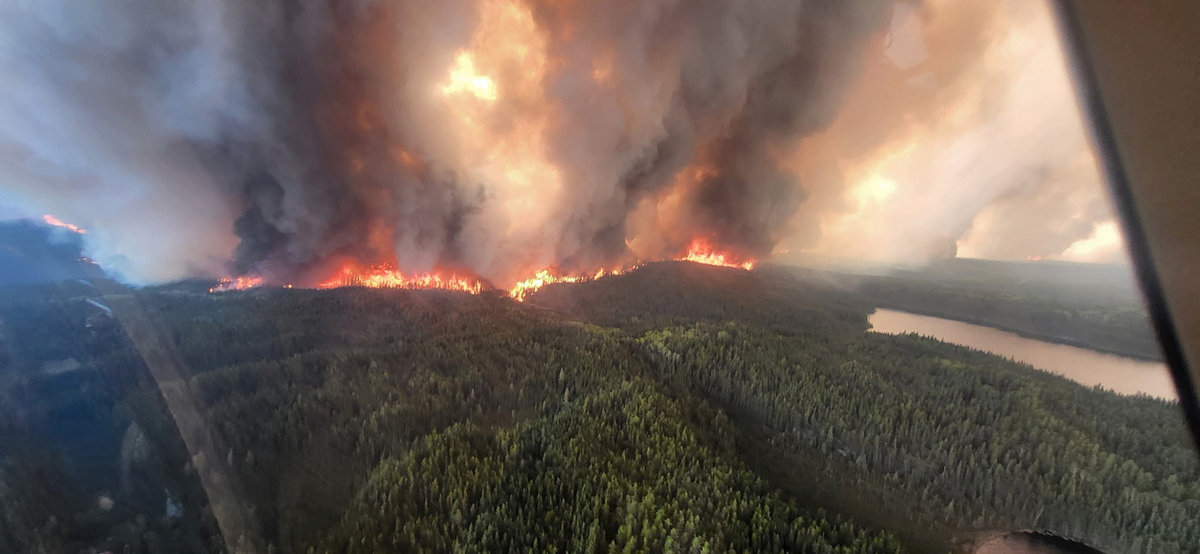OTTAWA: More than 17,000 people in Canada’s western Manitoba province were being evacuated on Wednesday as the region experienced its worst start to a wildfire season in years.
“The Manitoba government has declared a province-wide state of emergency due to the wildfire situation,“ Manitoba Premier Wab Kinew told a news conference.
“This is the largest evacuation Manitoba will have seen in most people’s living memory,“ he said.
Kinew said he asked Prime Minister Mark Carney to authorize the Canadian military to help with the evacuations and firefighting.
Military aircraft, he said, would be deployed “imminently” to help move people out of endangered remote northern communities to safety, along with additional firefighting resources.
The evacuations include the town of Flin Flon, where 5,000 residents were told earlier to get ready to flee on a moment’s notice as a major wildfire bore down on the mining town named after a fictional character in a 1905 paperback novel.
Residents of several other remote towns and Indigenous communities have also now been told to leave.
Most of the evacuees are expected to be transported to the Manitoba capital of Winnipeg.
‘Changing climate’
“For the first time, it’s not a fire in one region, we have fires in every region. That is a sign of a changing climate that we are going to have to adapt to,“ Kinew said.
Twenty-two wildfires were active in the province.
Nearly 200,000 hectares of forests have been scorched in just the past month or triple the annual average over the previous five years, Kirstin Hayward of the Manitoba wildfire service told an earlier news conference.
“Manitoba has the highest fire activity in Canada so far this year, due in part to a prolonged period of warm and dry conditions,“ she said.
Climate change has increased the impact of extreme weather events in Canada.
About 1,000 residents of Lynn Lake and Marcel Colomb First Nation in Manitoba and 4,000 people from the northern village of Pelican Narrows and other communities in neighboring Saskatchewan had already been evacuated earlier in the week.
A firefighter was severely injured when he was struck by a falling tree while battling blazes and was being treated in hospital, Kinew said.
The Manitoba premier had noted earlier that hotels in Winnipeg were already full of wildfire evacuees and visitors for events.
“We’re going to be turning to other folks in the community, not necessarily private residences, but companies and communities across the province to potentially open your doors” to displaced residents, he said.
Emergency shelter spaces were also being set up, he later said.
Earlier this month, two residents of the small community of Lac du Bonnet died after being trapped in a major wildfire northeast of Winnipeg.
In 2023, the worst wildfire season in the country’s history, the only recorded deaths were among firefighters.
There are currently 134 active fires across Canada, including in British Columbia, Alberta, Saskatchewan, Manitoba and Ontario. Half are considered out of control.









